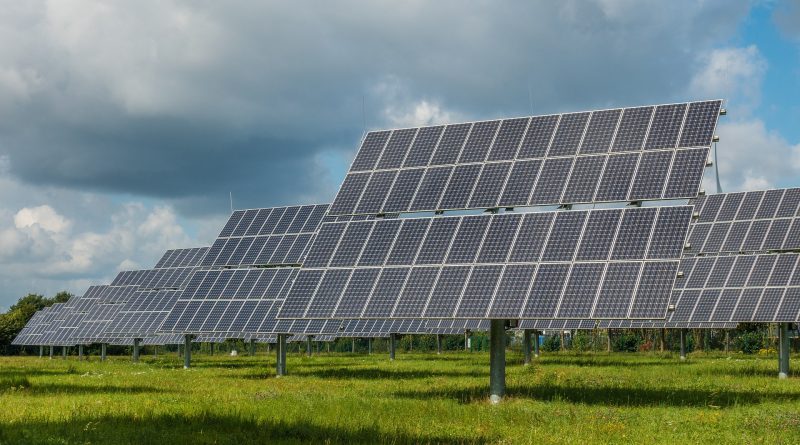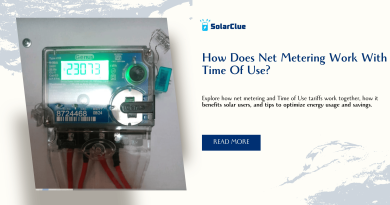Grid Connected and Off-Grid Solar
Solar energy is rapidly gaining popularity as a renewable and sustainable source of power. With advancements in technology, solar plants have become an efficient way to generate electricity. There are two main types of solar plants: grid-connected and off-grid. In this blog, we will explore the differences between these two systems and delve into their advantages and disadvantages.
Table of Contents
Grid-Connected Solar Plants
Grid-connected solar plants, as the name suggests, are connected to the main power grid. These systems use solar panels to convert sunlight into electricity, which is then fed into the grid. The main components of a grid-connected solar plant include solar panels, inverters, and the grid connection system.
One of the significant advantages of grid-connected solar plants is their ability to sell excess electricity back to the grid. During peak sunlight hours, when the solar panels generate more electricity than is required by the plant, the excess power is sent to the grid. This not only helps in offsetting the initial investment but also contributes to the overall electricity supply for the community.
Another advantage is the reduced reliance on batteries. Unlike off-grid solar plants, which require storing energy in batteries for use during non-sunny periods, grid-connected systems do not depend on batteries. This eliminates the need for regular battery maintenance and replacement, reducing costs in the long run.
However, one potential disadvantage of grid-connected solar plants is their vulnerability to power outages. In case of a grid failure, these plants automatically shut down to prevent any damage to the grid workers who might be working to restore power. This means that even if there is sunlight available, the solar plant cannot be used until the grid power is restored.
Off-Grid Solar Plants
Off-grid solar plants, also known as stand-alone solar systems, are independent of the main power grid. These systems are typically used in remote areas where grid connections are not available or expensive to install. Off-grid solar plants consist of solar panels, batteries for energy storage, charge controllers, and inverters.
One major advantage of off-grid solar plants is their ability to provide electricity in remote locations. By harnessing the power of the sun, these systems can generate electricity even in areas where traditional power infrastructure is absent. This makes off-grid solar plants a viable solution for rural electrification and powering isolated facilities like farmhouses and cabins.
Moreover, off-grid solar plants offer autonomy and self-reliance. Since these systems store excess energy in batteries, they can provide electricity even during nighttime or cloudy days when solar panels are not actively generating power. Additionally, the excess energy can be used during power outages, ensuring uninterrupted electricity supply.
However, the initial setup cost of off-grid solar plants is generally higher compared to grid-connected systems. The need for batteries for energy storage significantly adds to the expenses. Additionally, the maintenance and replacement of batteries over time can be costly.
Conclusion
Solar energy is undoubtedly paving the way towards a clean and sustainable future. Both grid-connected and off-grid solar plants offer unique advantages and cater to different energy needs. Grid-connected plants allow for surplus electricity to be fed back to the grid, reducing dependency on batteries and offsetting costs. On the other hand, off-grid plants provide electricity in remote locations and offer autonomy during power outages.
The choice between grid-connected and off-grid solar plants ultimately depends on the requirements and circumstances of the specific location. Factors such as access to the main power grid, initial setup costs, and the need for uninterrupted power supply influence the decision-making process. Regardless of the choice, investing in solar energy brings us one step closer to achieving a sustainable and greener future.
Ready to power your world sustainably? Explore cutting-edge solar solutions with SolarClue®. Visit our website now to discover a range of grid-connected and off-grid options tailored to your needs.
Frequently Asked Questions
Grid-connected systems are tied to the main power grid, while off-grid operates independently.
Grid-connected systems offer continuous power and potential surplus energy sales.
Yes, off-grid solar plants can provide sustainable energy even in urban settings.
SolarClue® provides advanced technologies to enhance the efficiency of grid-connected solar systems.
Regular checks, cleaning, and battery maintenance ensure optimal off-grid solar plant performance.
While possible, it may require system modifications; consult with SolarClue® experts for guidance.
Typically, they don’t, as safety measures disconnect them during outages to protect utility workers.
In many regions, there are tax incentives and rebates for grid-connected solar installations.
Factors include location, energy needs, and the desire for energy independence; SolarClue® can help you decide.
Off-grid solar reduces dependence on traditional energy sources, lowering carbon footprint and promoting eco-friendliness.



